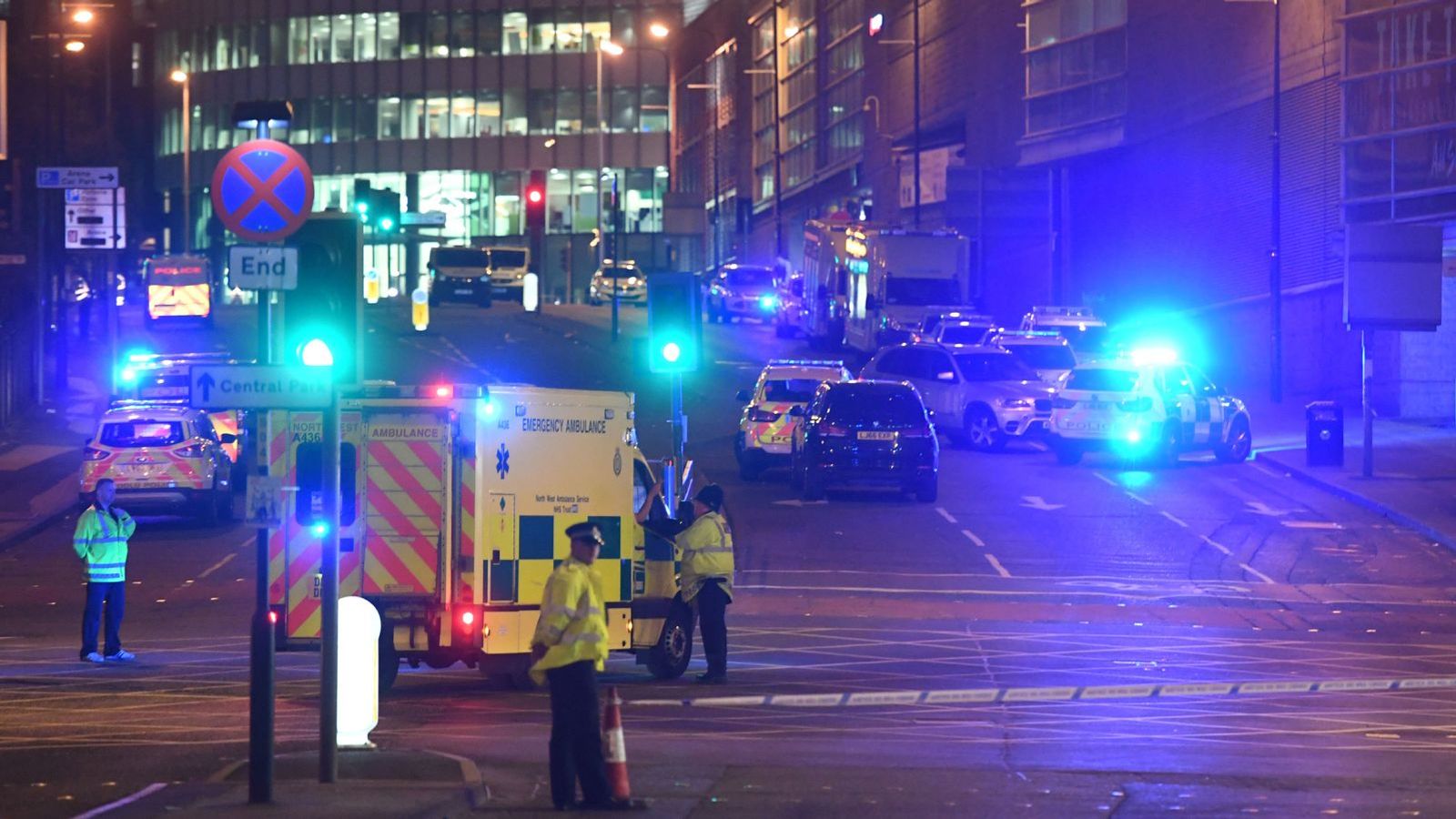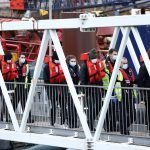Firefighters were in tears and turned their backs on a senior commander at a debrief as they sought answers from senior officers about why they had not been deployed to the scene of the Manchester Arena attack, the inquiry has heard.
The inquiry was told that a tearful paramedic approached firefighters and asked why they were “just stood around” at a fire station a mile from the attack.
Group Manager Alan Topping, duty command support officer on the night of the attack, told the inquiry that firefighters were ashamed and emotional in the aftermath of the attack in which the service did not arrive at the scene until two hours after the explosion.
The officer, who had 29 years of experience, is the first who was present on the ground to give evidence to the inquiry and said that by the time firefighters arrived it was too late to help.
John Cooper QC, for the victims’ families, asked about a “hot” debrief soon after the attack with Assistant Chief Fire Officer Geoff Harris.
“The debrief went very poorly for everyone with ACO Harris and he had no answers to give anyone?” Mr Cooper asked.
“With all the questions being asked he had none to give and many if not all of the fire officers turned their back on him?”
Mr Topping said: “I have been to may debriefs in my career and that was the most emotional.”
“Your colleagues wanted to do the best they could and were very angry with ACO Harris?” Mr Cooper asked.
“They were frustrated and it was being directed to ACO Harris because he was the highest ranking officer in attendance. He was there to provide answers and he couldn’t provide any answers,” Mr Topping told the inquiry.
“I don’t think it was a conscious decision, I think it was just when you’re not being answered, people show emotions differently, people were turning away, they were walking away, people were crying – I have never seen firefighters crying in a debrief, never – that’s the level of emotions what was going on.
“Firefighters felt such shame, disappointment, all the words which you could use, to describe why we didn’t attend that incident to help people.
“I felt ashamed to be a firefighter and felt like we let the people of Greater Manchester down. We were there to help people and we didn’t do our job.”
He added: “The period immediately after this incident was the lowest part of my career. I felt ashamed to be a firefighter. We didn’t respond and we didn’t do our jobs to make a difference.
“It took a couple of days to put my shirt back on, such was the strength of my feelings.”
The fire officer told the inquiry: “I just feel so sad we didn’t attend for the families. I have always been proud to be a member of Greater Manchester Fire and Rescue, still am, I am not ashamed of the service but we didn’t show ourselves in the best light that night and show what we could do.”
The inquiry also heard a statement from a firefighter called Kyle Gray who described being approached by a distressed female paramedic who “came over crying and pleading with us to go and help”.
He said the woman had told him: “What are you just doing stood around here? There are people dying, we need your help.
“I have just taken an 18-year-old girl in the back my ambulance who has died on the way to hospital, and you lot are just stood around.”
Mr Topping said he was shocked to arrive at Manchester central fire station at 12.20am, an hour and 49 minutes after the explosion, to find “a lot of firefighters hanging around, some lying down”.
“It didn’t feel right it didn’t feel like a normal incident,” he said.
Mr Topping told the inquiry that “blame on the chief” – a reference to Chief Fire Officer Peter O’Reilly – was “heard by a number of people”.






















